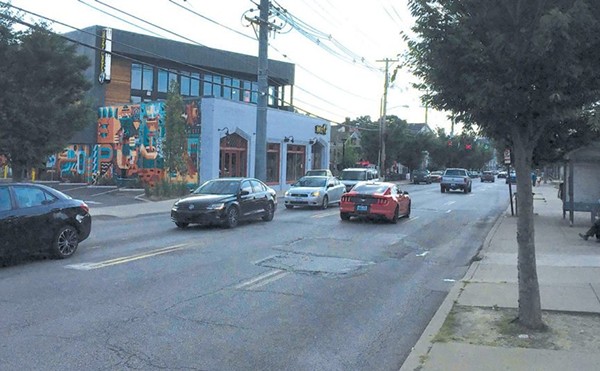The death of Barry Bingham Jr. inspired a lot of bittersweet remembrances of things past, especially for those of us old enough to remember when The Courier-Journal was annually ranked as one of the nation’s top 10 newspapers, when WHAS-AM radio was a 50,000-watt beacon of class and civility, and when WHAS-TV could brag about more than its weather coverage.
As much as the Kentucky Derby or bourbon whiskey, the Bingham media empire made our city and state distinct in middle America. Visitors often wondered why Louisville had better newspapers, and a better radio and TV station, than Atlanta, Cincinnati, Nashville, Kansas City, Columbus or Indianapolis.
The only reason was that the Binghams lived here.
Few wealthy families in American history have practiced noblesse oblige as devoutly or effectively as the Binghams. Through their media empire and their philanthropy, they set the social and political agenda for our city and state through most of the last century.
Sometimes, many times, the Binghams, especially Barry Jr. and his father, were appreciated more nationally than they were at home. The good ol’ boy establishment in City Hall and the statehouse in Frankfort didn’t always share their enthusiasm for education, the arts, civil rights, the environment and coal-mine safety.
But they pushed and shoved until Kentucky, however grudgingly, did the right thing. Their good work was certified by Pulitzer Prizes and Peabodys and every other award that’s important in the world of journalism. But the baubles didn’t mean as much to them as the satisfaction of doing the right thing.
Then, in 1986, it all came unraveled. Due to a bitter and ugly family squabble that could not be resolved, Barry Sr. decided to sell the empire. He wanted to keep the properties intact, but couldn’t find a buyer with deep enough pockets.
Failing that, he wanted to sell the newspapers to one of the bidders with similar journalistic values — The New York Times or The Washington Post.
Alas, however, the threat of a lawsuit forced him to sell to the highest bidders. The newspapers went to Gannett, the radio station to Clear Channel.
So for the last 20 years of his life, Barry Jr. was forced to suffer mostly in helpless silence as the barbarians stormed the gates and burned the castle. As feared, Gannett turned The Courier-Journal into just another profit center, and Clear Channel allowed the airwaves of WHAS-AM to be sullied by crass buffoons such as Rush Limbaugh and John Ziegler.
To be fair, at least some of The C-J’s slippage is the inevitable result of changing times and the electronic age. As more and more consumers have turned to TV or the Internet to get their news, newspapers everywhere have lost circulation almost as fast as they’ve lost credibility.
In Louisville, the credibility problem is particularly alarming. Barry Jr.’s grandfather, Judge Robert Worth Bingham, decreed decades ago that the newspaper was a “public trust.” His son, Barry Sr., and grandson, Barry Jr., honored that ideal. But as we’ve seen recently, especially in The C-J’s arena coverage (or non-coverage, as the case may be), that’s no longer the prevailing philosophy at Sixth and Broadway.
The First Amendment guarantees freedom of the press so that the three branches of government — executive, legislative and judicial — will have an unfettered watchdog. But when the Bill of Rights was adopted in 1791, the news was disseminated by thousands of small, independent pamphlets — much like today’s blogs. It was impossible, in other words, to foresee the day when newspapers would be controlled by giant chains that owned monopolies in cities such as Louisville and were motivated by profit more than integrity.
So what can be done to hold the news media accountable for its work? If today’s publishers and owners cannot be trusted to conduct their business as a public trust — which they obviously can’t — then how can they be made to adhere to the principles that guided the Binghams?
Publishers and editors are correct to oppose any sort of government oversight. But the news industry also should face its credibility crisis squarely by pooling its resources to establish a non-profit organization that will police the industry and have the power to enforce a code of ethics, to hear grievances from the public, and to assess penalties on news organizations that are found to have violated the public trust.
It should be called the Bingham Center for Ethics in Journalism, and its national office should be established in Louisville. I can’t think of a better way to honor the Bingham legacy.
Contact the writer at [email protected]





